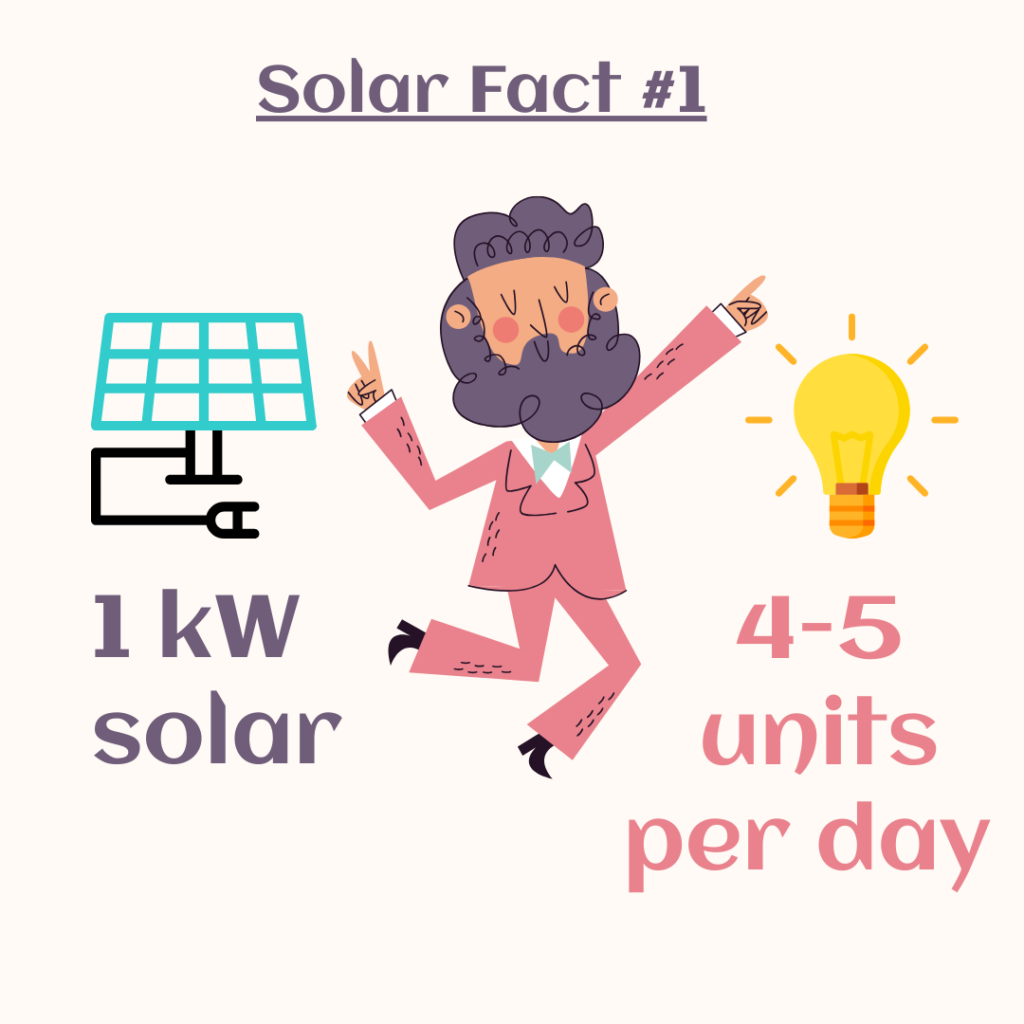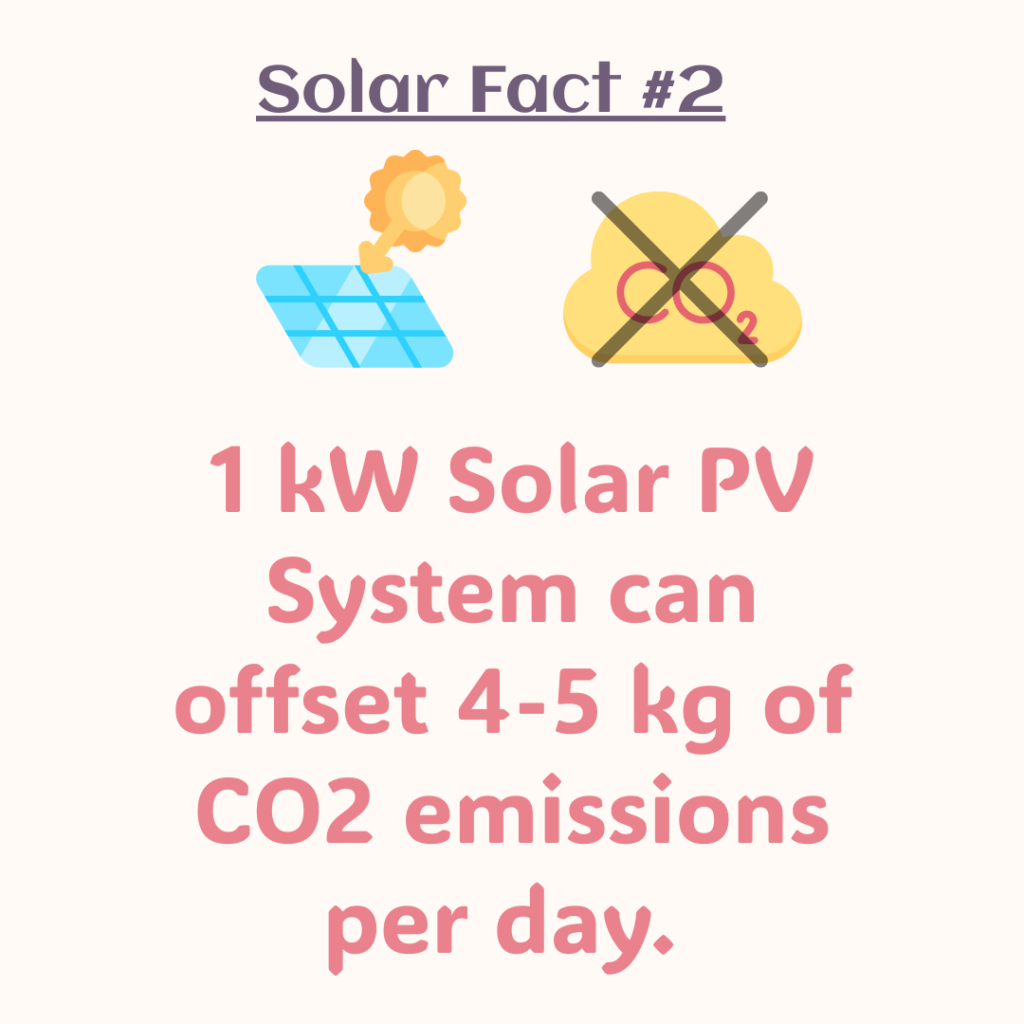Helping the planet with solar energy: putting things into perspective
Let's expand on how much positive impact can one decision have on the environment and society-
- Carbon Emissions from Electricity Generation:
-
- The typical carbon emission rate for conventional electricity generation in India is around 0.9 to 1.3 kilograms of CO2 per kilowatt-hour (kg CO2/kWh) of electricity produced. These emissions contribute to air pollution and climate change.
-
Solar Power and Carbon Offsetting:
- Solar power provides a clean and renewable alternative to conventional electricity generation. Solar panels harness sunlight to generate electricity without emitting CO2 during operation.
- Installing a 1 kW solar power plant on your rooftop in India can generate approximately 4 kilowatt-hours (kWh) of electricity daily, depending on factors like sunlight availability and panel efficiency.
-
Carbon Offset Calculation:
- Considering the average carbon emission rate for conventional electricity generation in India, the solar power plant would offset approximately 4 kWh/day * 1 kg CO2/kWh = 4 kg CO2/day.
-
Putting it into Perspective:
- Comparing the carbon offset to everyday activities or objects in India:
- Driving an average car for about 32 kilometers emits roughly 4 kg of CO2.
- Burning around 1.5 kilograms of LPG emits approximately 4 kg of CO2.
- Heating a typical home with natural gas for a day emits around 7.5 kg of CO2.
- Comparing the carbon offset to everyday activities or objects in India:
-
Significance of Solar Energy:
- The installation of a 1 kW solar power plant on your rooftop not only reduces carbon emissions but also promotes energy independence and sustainability.
- Solar power is particularly beneficial in India, where there is abundant sunlight throughout the year, making it an ideal renewable energy source to mitigate the impacts of climate change and reduce dependence on fossil fuels.
-
Environmental and Economic Benefits:
- By harnessing solar energy, individuals can contribute to reducing air pollution, combating climate change, and conserving natural resources.
- Additionally, solar power can lead to long-term cost savings on electricity bills, providing financial benefits to homeowners and businesses while reducing reliance on grid electricity, which is often generated from fossil fuels.
-
Government Initiatives and Incentives:
- The Indian government has introduced various initiatives and incentives to promote the adoption of solar energy, including subsidies, tax benefits, and net metering policies that allow users to sell excess electricity back to the grid.
- These measures aim to accelerate the transition towards clean and sustainable energy sources and achieve the country's renewable energy targets.
In summary, installing a 1 kW solar power plant on your rooftop in India not only offsets carbon emissions equivalent to various everyday activities but also offers environmental, economic, and social benefits. Embracing solar energy contributes to a cleaner, greener future for India and helps address global climate challenges.






Very interesting details you have observed, appreciate it for posting.Raise your business
Thank you for your sharing. I am worried that I lack creative ideas. It is your article that makes me full of hope. Thank you. But, I have a question, can you help me?
Your article helped me a lot, is there any more related content? Thanks!